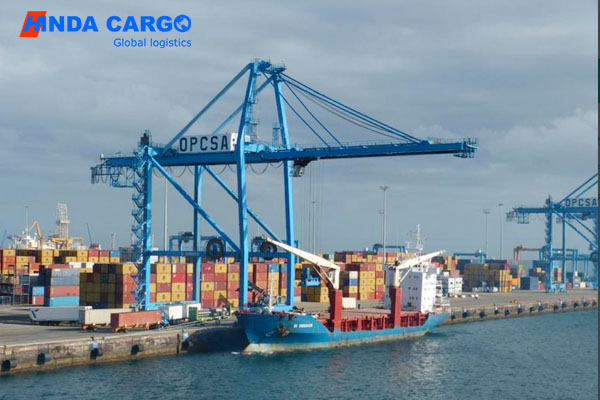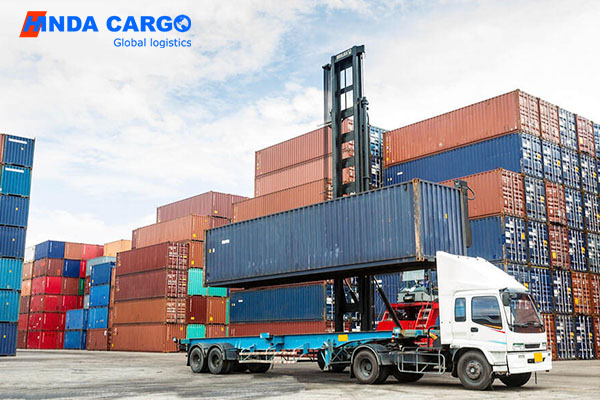What are international trade terms?
International trade terms (Incoterms) are international standards developed by the International Chamber of Commerce (ICC) to regulate the division of responsibilities, costs and risks between buyers and sellers in global trade. Since its first publication in 1936, international trade terms have become an important benchmark in the field of global trade and logistics and are widely used in international commercial contracts.
This article will explore the background, importance, specific terms and their application in actual trade of international trade terms in depth to help readers better understand and use these terms.

Background of international trade terms
1. Origin and development:
International trade terms were first formulated and published by the International Chamber of Commerce in 1936 to resolve disputes caused by differences in business practices and laws in different countries in global trade. By unifying standards, international trade terms help buyers and sellers clarify their respective responsibilities and obligations, reducing misunderstandings and disputes.
2. Regular updates:
In order to adapt to changes in the global trade environment, the International Chamber of Commerce regularly revise and update international trade terms. The latest version is the Incoterms® 2020 version released in 2020. Each update will adjust and add new terms based on the development trend and practical experience of international trade to better reflect the needs in actual operations.
What is the importance of international trade terms?
The importance of international trade terms: unified standards (reducing misunderstandings and disputes in cross-border trade), clarifying responsibilities and risks (preventing disputes caused by unclear responsibilities), and simplifying contract negotiations.
1. Unified standards:
International trade terms provide a set of unified standards to help global trade participants understand and follow the same rules. This helps reduce misunderstandings and disputes in cross-border trade and improve trade efficiency.
2. Clarify responsibilities and risks:
By defining in detail the responsibilities and risks of buyers and sellers during the transportation of goods, international trade terms ensure that all parties are clear about their respective obligations. This helps prevent disputes caused by unclear responsibilities and ensures smooth transactions.
3. Simplify contract negotiations:
The use of international trade terms in international trade contracts can greatly simplify the contract negotiation process. Standardized terms save time and costs by eliminating the need for parties to discuss issues such as transportation, insurance, and customs clearance in detail in each transaction.

What are the specific contents of international trade terms?
International trade terms are divided into two categories: terms applicable to all modes of transport and terms applicable only to sea and inland waterway transport. Here are some common international trade terms and their specific meanings:
Terms applicable to all modes of transport
1. EXW (Ex Works):
Under EXW terms, the seller delivers the goods to the buyer at his factory or warehouse. The buyer bears all costs and risks from the seller's location, including shipping, insurance, export customs clearance, and import customs clearance.
2. FCA (Free Carrier):
Under FCA terms, the seller delivers the goods to the carrier or other designated person designated by the buyer. The seller bears the export customs clearance costs and risks, and the buyer bears the transportation costs and risks.
3. CPT (Carriage Paid To):
Under CPT terms, the seller pays the transportation costs to transport the goods to the designated destination, but the risk is transferred to the buyer when the goods are handed over to the carrier. The buyer bears all risks starting from the carrier.
4. CIP (Carriage and Insurance Paid To):
Under CIP, the seller pays for the transportation and minimum insurance costs to deliver the goods to the named destination. Risk is transferred to the buyer when the goods are handed over to the carrier. The buyer bears all risks from the carrier.
5. DAP (Delivered At Place):
Under DAP, the seller is responsible for all costs and risks during transportation and delivers the goods to the named destination. The buyer is responsible for import customs clearance and post-destination costs.
6. DPU (Delivered at Place Unloaded):
Under DPU, the seller is responsible for all costs and risks during transportation and delivers the goods to the named destination and unloads them. The buyer is responsible for import customs clearance and post-destination costs.
7. DDP (Delivered Duty Paid):
Under DDP, the seller is responsible for all costs and risks, including transportation, insurance, export customs clearance, and import customs clearance. The buyer only needs to receive the goods at the named destination.

Terms applicable only to ocean and inland waterway transport
1. FAS (Free Alongside Ship):
Under FAS, the seller delivers the goods to the ship at the port of shipment. The buyer bears all costs and risks after loading, including ocean freight and insurance.
2. FOB (Free On Board):
Under FOB, the seller delivers the goods by loading them onto the ship at the designated port of shipment. The buyer bears all costs and risks after loading, including ocean freight and insurance.
3. CFR (Cost and Freight):
Under CFR, the seller pays the ocean freight to ship the goods to the destination port, but the risk is transferred to the buyer at the time of loading. The buyer bears the risks after loading and the costs after the destination port.
4. CIF (Cost, Insurance and Freight):
Under CIF, the seller pays the ocean freight and the minimum insurance premium to ship the goods to the destination port. The risk is transferred to the buyer at the time of loading. The buyer bears the risk after loading and the cost after the destination port.
Conclusion
International trade terms are an indispensable and important tool in global trade. By providing unified standards, international trade terms help buyers and sellers clarify their respective responsibilities, costs and risks, reduce misunderstandings and disputes in the trade process, and improve trade efficiency.




